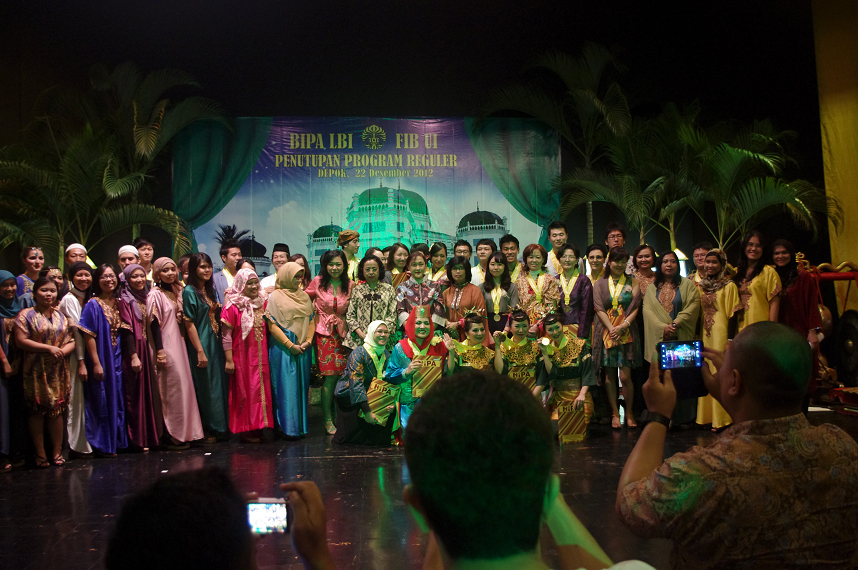Human Resources Development Initiatives
Fundamental Approach
At present, the automotive industry is faced with a difficult business environment for a number of reasons. These reasons include increased international competition on the back of the maturation of markets in developed countries, including Japan, and the expansion of markets in emerging countries; strengthened environmental regulations; and trans-national partnerships and reorganizations. Under these circumstances, Daihatsu has introduced personnel systems founded on the basic philosophy of equal opportunities and the merit system in order to create products and services that are unique to Daihatsu and become a company that is needed by society. We seek to develop human resources capable of thinking and acting for themselves based on a personnel system with equal opportunities that enable all people with talent and desire to undertake challenges at all times in a fair manner, and the merit system that rewards people based on their efforts and results, regardless of job category, academic history, or age. We also promote workplace creation activities to “create workplaces and culture in which employees can work safely and happily,” one of the most important themes of our corporate policies.
Workplace Creation Activities
Daihatsu offers an e-learning course on workplace creation activities for all operating officers and management. The aim is for all employees in management who takes the course to gain knowledge and skills in coaching and one-on-one meetings* in order to create a psychologically safe workplace that forms the foundation to “create workplaces and culture in which employees can work safely and happily” and to implement specific activities.
* Regular, short one-on-one dialogue that supports the growth of members
Hiring
Daihatsu hires human resources with the necessary qualities and abilities in a fair and equitable manner, regardless of their nationality, gender, disability, or other factors in order to realize its vision. We focus on recruiting human resources with the following qualities: “ability to pursue their ambitions without setting limits for themselves,” “ability to explore all possibilities and tackle various tasks beyond their boundaries,” and “ability to work anywhere in the world to meet diverse needs.”
Employee Evaluation and Feedback
The roles and themes of the operations of Daihatsu employees are incorporated into division/department policies from corporate policies and are implemented as individual goals based on these policies. Evaluation and feedback are based on close communication between subordinates and supervisors, and are designed to lead to the development of human resources. More specifically, at the beginning of each fiscal year, supervisors set expected roles and other requirements which are then shared with subordinates through interviews. At the end of the fiscal year, subordinates review and self-evaluate as to how well they have fulfilled their expected roles, which are then evaluated by the supervisor who also provides feedback. Thus, human resources are developed through a cycle of goal setting, initiatives, self-evaluation, supervisor evaluation, and feedback, while incorporating coaching and one-on-one meetings.
Education and Career Development
 Universitas Indonesia (overseas language courses) graduation ceremony
Universitas Indonesia (overseas language courses) graduation ceremony
Daihatsu has established a training system for employees, from new to middle management to management, to acquire the specialized knowledge, problem-solving skills, and management skills that are required at each level of employment. Furthermore, we have established systems that allow employees to take external training courses in business skills and languages as part of their self-development in order to support their career development and enhance the vitality of the company. Additionally, we have established selection-type curricula, including overseas trainee systems, to develop human resources capable of leading overseas businesses in the future.
Number of Participants and Hours in Level-based Training (FY2022 Results)
| Target (level) |
Number of Participants | Total Man-hours (hours/person) |
Training Content |
|---|---|---|---|
| New employees | 180 | 163 | Introductory training |
| New middle management level | 162 | 4 | Role recognition, encouragement of members |
| New foreman level | 198 | 58 | Role recognition, development of human resources Daily management (compliance) Problem resolution (set-type) |
| New section manager level | 65 | 58 | Role recognition Daily management (compliance) Development of human resources (organizational management) |
| New deputy general manager level | 27 | 62 | Organizational management |